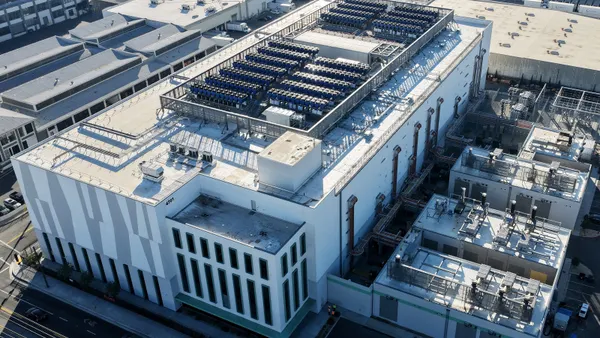Dive Brief:
- A new report from ClimateWorks finds global energy efficiency programs could neutralize the cost of decarbonization, slashing $250 billion each year to save up to $2.8 trillion through 2030, Energy Efficiency Markets reports.
- Among the report's findings: carbon capture and sequestration in utility power plants is "largely avoidable" through 2030 by combining efficiency and renewables; and existing buildings in Europe and the United States represent huge potential emissions savings, but new policies and programs will be required.
- Energy efficiency policies in place since 1990 have already helped China, Europe and the United Sates reduce costs by about $750 billion in efforts to limit global warming, the report concluded.
Dive Insight:
Climate talks kick off today in Paris, but last week, ClimateWorks released a new report, “How Energy Efficiency Cuts Costs for a 2° C Future,” which shows that limiting global warming does not have to cost anything. Through energy efficiency, costs can run net-neutral as countries around the globe work to achieve the internationally-agreed 2 degrees Celsius upper limit for climate change.
Through 2030, the report finds energy efficiency can reduce the global cost of limiting warming up to $2.8 trillion, though the potential annual savings of the energy efficiency pathway vary by nation. Annual savings range from 0.1% to 0.4% of annual gross domestic product, and are not sensitive to macroeconomic shifts or to changes in fuel price. And the result of efficiency efforts would be to reduce annual emissions by 11 billion metric tons of CO2 in 2030.
The report finds "significant opportunities in India to improve energy efficiency, and said China, Brazil and Mexico have already "begun the process of 'leapfrogging' toward less energy-intense economies and are currently realizing avoided lock-in costs and related economic benefits."
"While cost savings are lower in some regions, such as India, this finding reinforces the need for energy efficiency," according to the report. "Because of increasing energy demand in these regions, a significant amount of energy efficiency is required in order for them to contribute to any cost effective pathway that can help limit warming to 2° C."
In the United States, tighter fuel economy standards and crediting energy efficiency under the Clean
Power Plan "represent major steps forward to realizing the cost savings," the report found. "Nevertheless, incentives are still lacking for significant retrofits of existing buildings, and the reduction of fuel consumption in energy-intensive industries."














